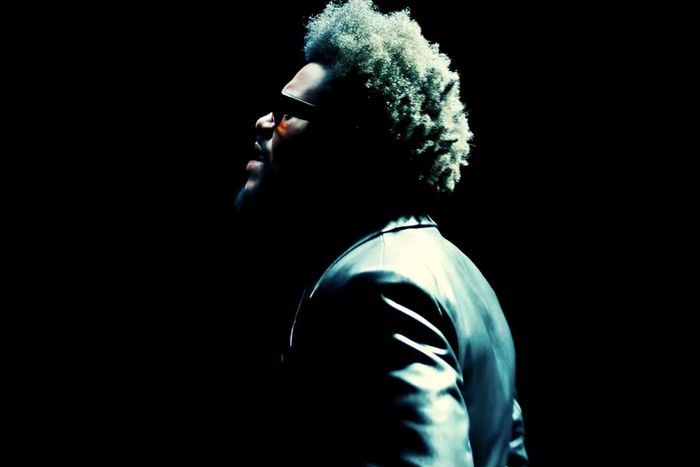
Lately, January hasn’t been kind. 2020 arrived under a pall of fear over a new airborne respiratory virus wreaking havoc overseas; the first week of 2021 was marred by chaos at the United States Capitol and rumors of possible escalation with Iran. 2022 is only seven days old, but hundreds of thousands are falling ill each day while we dream of virtual worlds, peer into deep space for answers about our past, and wonder how much future is left for us. The all-consuming darkness of a protracted public-health crisis forces a choice: Lean in or look away. Take total stock of the intricate, interlocking horrors facing us this decade or seek peace in distraction or denial. Pandemic-era pop culture shares this dilemma. Creatives never seem quite sure how thick to lay it on, whether our peaking nihilism is best addressed via dire allegory or brutal directness, whether our entertainment ought to even mirror our circumstances at all. Works like Adam McKay’s Don’t Look Up and “That Funny Feeling,” from Bo Burnham’s Inside, make cases for both.
The Weeknd’s After Hours album soundtracked the early days of the pandemic, dovetailing with the horny jitters of a public suddenly and indefinitely stuck in the house. The choice to drop an album the moment a wave of cancellations struck live concerts, award shows, and television performances ultimately blazed a trail for pop-music peers worried that releasing an album in 2020, unaided by the normal network of public appearances, was akin to screaming into a void. There was a certain comfort in seeing a semblance of business moving on as usual, and club closures couldn’t stop the single “Blinding Lights” — on which the singer-songwriter born Abel Tesfaye revisits the electro-rock attempt of Starboy’s “False Alarm” with Swedish hitmakers Max Martin and Oscar Holter in tow — from storming global charts. It was odd handiwork, a tune that tacitly conjures another tune (in this case, ’80s synth-pop classic and international chart topper “Take on Me” by Norway’s A-ha) without stepping on its toes and cribbing melodies. Situated near the end of an album that skates effortlessly across styles pursued in prior Weeknd releases — the trap drums and insatiable libido of “Often,” the sleek electronics of My Dear Melancholy, the trendy dance-pop of “Can’t Feel My Face” — “Lights” and the slower, sweeter “Save Your Tears” suggested Tesfaye had reached the logical conclusion of the sinister, psychosexual excess that characterized the Weeknd since 2011’s House of Balloons. He echoed the sentiment in a GQ interview last fall, suggesting that his alter ego had its limits and setbacks.
Last summer, the team responsible for “Blinding Lights” reunited on “Take My Breath,” the opening salvo from a new Weeknd era. The song tiptoed into different genres, out into other countries, and back in time as it threaded disco-inflected guitar, crisp French-house drums, gossamer ’80s synth textures, and watery organ tones you’d sooner hear in a ’70s pop song. This week’s Dawn FM, his fifth studio album, completes a journey that started with “Can’t Feel My Face,” the singer’s first major crack at a pure pop hit as a solo artist. At the time it felt as though Tesfaye was minding the direction of the charts, attaching his name to a sound that was a surefire path to a smash hit. A few album cycles later, his knack for melodies has grown to match the breadth of his ideas about new territories to explore. The new music luxuriates in the joy the Weeknd gets in throwing his loyal listeners for a loop. Dawn FM is a slow pivot away from the downcast songs about cold self-gratification, recreational drugs, and meaningless sex of the artist’s early work and a more assured approach to the musical exploration of Weeknd releases since at least Starboy, an album ambitious enough to send for Daft Punk, Kendrick Lamar, Benny Blanco, and Future but not accomplished enough yet to incorporate them into a spotless work. Dawn tries a lot, often at once, but the partnerships between Tesfaye and Daniel Lopatin, best known as Oneohtrix Point Never (whose edifying balance of avant-garde sonics and pop smarts powers their collaborative work on earlier projects), and between Tesfaye, Martin, and Holter strike a useful balance. The hooks hit hard, and the production is full of surprises, of unexpected combinations of disparate ideas and collaborators.
Dawn FM is arranged like a radio playlist DJ-ed by Jim Carrey, a slow slide from up-tempo love songs to brooding ballads and back that’s punctuated by chipper commercials for imaginary products, taking a cue from Lopatin’s last album in its search for a perfect FM radio hour of the mind. It’s lighter on its feet and in its spirit than its predecessor in intent and execution. Tesfaye had been working on a batch of songs informed by a bout of pandemic depression and inertia last year but began to yearn for a fresher approach. Instead of leaning on lurid stories about lives in disrepair, he dreamed up a new concept about leaving that darkness behind. “Picture the album being like the listener is dead,” Tesfaye told Billboard last fall. “And they’re stuck in this purgatory state, which I always imagined would be like being stuck in traffic waiting to reach the light at the end of the tunnel.” The new songs trace the singer’s trip from a lonely place and the roller-coaster ride of hookups, betrayals, and new contenders in his love life. Dawn takes inspiration from the saccharine lyricism and robot funk of ’80s soul but keeps its gaze trained further afield. “Sacrifice” outfits a sample of Detroit singer Alicia Myers’s post-disco classic “I Want to Thank You” with the kind of abrasive dance-funk arrangement that populated Daft Punk’s Homework album. (Daft Punk is as notable an influence here as on Starboy, but that sound is just one piece of Dawn FM’s extensive tool kit; there’s just as much of a whiff of Stevie Nicks’s “Edge of Seventeen” on “Take My Breath” as there are traces of “Da Funk.”) Chunky synths and clattering drum machines abound. The vulnerable “How Do I Make You Love Me?” and “Don’t Break My Heart” reimagine the pillowy sentimentality of “Hold On, We’re Going Home” as bubbly electro. These songs aren’t cheap imitations, though. They’re stacks of impressively jarring experimental ideas like “Here We Go … Again,” which touts production from Beach Boy Bruce Johnston, a charming guest verse from Tyler, the Creator, and backing vocals by Mike Love’s son Christian, floating by on silky synths and gorgeous harmonies.
Dawn FM isn’t so much a nostalgia trip as an exercise in dislodging oneself from time. There’s too much joyful anachronism happening to plop it in with the unsubtle ’80s revival washing through pop right now. Dawn sees value in the slick, synthetic sonics of the era but rarely settles for simple pastiche. (But when it does so, it does it authentically: The vocal affectations and drum programming of “Gasoline” conjure the specific moment the U.K.’s ’80s pop elite discovered hip-hop; no one else on the radio is touching freestyle music and city pop as Dawn’s “Best Friends” and “Out of Time” do, although Bruno Mars will probably get there eventually.) This album’s kindred spirits are records like the Strokes’ The New Abnormal, in which the New York rockers adapt to sunny New Wave with predictable ease; Tame Impala’s The Slow Rush, in which Kevin Parker fold disco, hip-hop, and psych rock into impressive shapes; M83’s Junk, in which the French composer Anthony Gonzalez fashions a mutant pop music out of ersatz supermarket schmaltz; and Benny Sings’s Beat Tape series, in which hip-hop, yacht rock, city pop, and smooth jazz rub elbows. It’ll probably be seen as a sharp left for the Weeknd, and following the late-night reverie of After Hours with a record enamored of morning drive-time radio certainly points to the notion that this is meant to be a kind of fresh start.
You could argue that Dawn FM is merely a flowering of ideas that were there all along. House of Balloons creates chilly R&B out of samples of Siouxsie and the Banshees, Beach House, and Aaliyah and elsewhere seems to nod to the stormy moods and massive drum fills of Phil Collins classics and the bedroom antics of ’90s R&B legends like Jodeci. The Weeknd’s music has never been easy to nail down, not since the mixtapes (and the pivotal releases from Frank Ocean and Miguel) had a subgenre coined to account for their shared interests in rock and R&B, but it’s never been this delightfully slippery. (All the era’s really missing is a world-beating tour. Will 2022 ease up long enough for that, or will we live to see another Weeknd album cycle inside?) After Hours neatly summarizes all the places the Weeknd’s music had been; Dawn FM suggests there’s nowhere he can’t take this project going forward.





